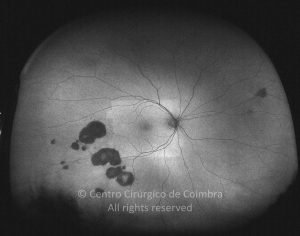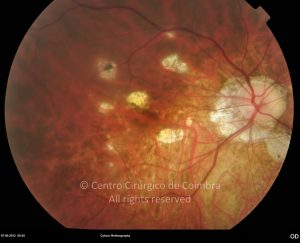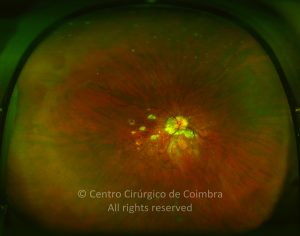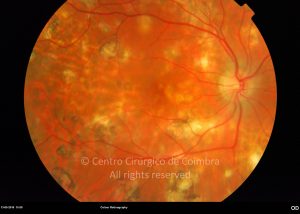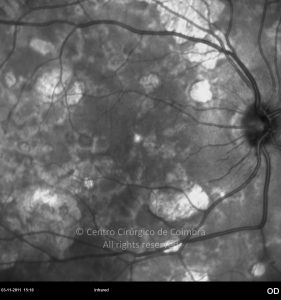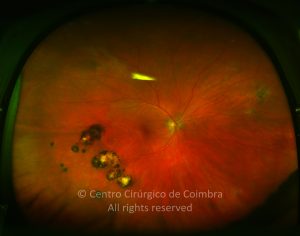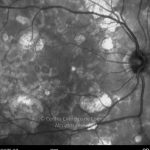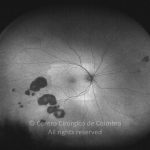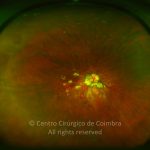Multifocal choroiditis is an inflammatory disease that causes vision loss in 70% of patients. Multifocal choroiditis is an inflammatory disease that causes visual loss in 70 % of patients. It usually occurs in 30 to 60-year-old healthy myopic females. Most cases are bilateral or become bilateral over time.
Fundoscopic findings include small, round, discrete and gray-yellowish spots located at the level of the retinal pigment epithelium and choriocapillaris, most often in the mid-periphery. As these lesions age and become inactive, they become atrophic and “punched-out”.
Patients may have variable amounts of anterior segment inflammation and vitritis.
Peripapillary and macular choroidal neovascularization may occur in 25-32 % of the patients.
Differential Diagnosis:
- Birdshot retinochoroidopathy and myopic degeneration
- Presumed ocular histoplasmosis syndrome
- Sarcoidosis
- Serpiginous coroiditis
- Subretinal fibrosis and uveitis syndrome
- Sympathetic uveitis
- Vogt-Koyanagi-Harada disease





